- Bruno Mars' First Dollar: From 4-Year-Old Elvis to Ramen Noodle Survival
- Mars' Rocket Ship to Stardom: When the Money Finally Started Rolling In
- Bruno Mars Hits the Jackpot: The $100 Million Years and Vegas Goldmine
- Bruno Mars' 2025 Money Machine: Sitting Pretty on $175 Million
- Bruno's Blueprint for Building an Empire: Success Lessons from a Music Mogul
Bruno Mars has hustled his way to a massive $175 million net worth through chart-topping hits, sold-out world tours, lucrative Vegas residencies, and some seriously smart business moves that keep the money flowing.
Bruno Mars' First Dollar: From 4-Year-Old Elvis to Ramen Noodle Survival
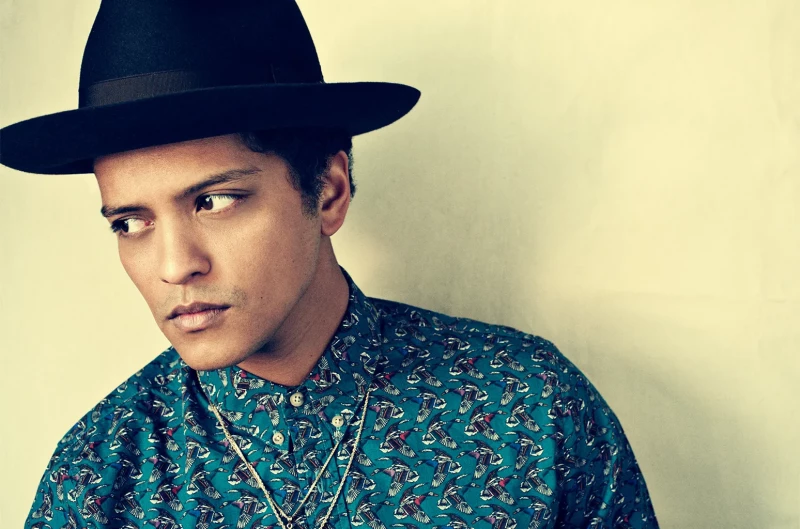
Bruno Mars' money-making journey started ridiculously early – like, before-he-could-tie-his-shoes early. At just 4 years old, little Peter Gene Hernandez (his real name) was already earning cash as an Elvis impersonator with his family's band, The Love Notes, around Waikiki. We're talking about a preschooler out there doing "Hound Dog" and "Love Me Tender" for tourists, pulling in about $25-50 per show. Not exactly your typical kid's allowance situation.
By his teenage years, Mars was gigging all over Honolulu, covering everything from classic rock to R&B hits. He was making decent money for a high schooler – somewhere between $100-300 per gig depending on the venue size and crowd. But Mars knew this local scene wasn't going to cut it if he wanted to make it big in music.
The real hustle began in 2003 when 18-year-old Mars packed up his life and moved to Los Angeles with exactly $1,000 in his pocket and dreams bigger than his bank account could handle. His first "real" job? Janitor and general assistant at a recording studio, making minimum wage at $5.15 per hour. But here's the thing – Mars wasn't just there to sweep floors and empty trash cans. He was soaking up everything about the music business while secretly working on his own stuff after hours.
"I was basically surviving on ramen noodles and whatever free food I could scrounge up," Mars later joked. "But I knew I was exactly where I needed to be. Every single day in that studio was like getting a master's degree in music, except they were actually paying me to learn."
Mars' Rocket Ship to Stardom: When the Money Finally Started Rolling In
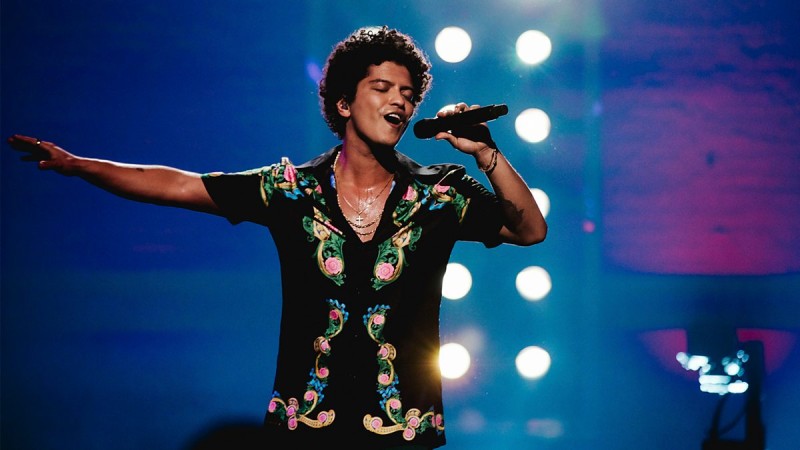
Bruno's big break took its sweet time, but when it finally happened, it was like getting hit by a freight train of success. In 2009, everything changed when he co-wrote and featured on B.o.B's "Nothin' on You" and Travie McCoy's "Billionaire." Both tracks became massive hits, and suddenly Mars was cashing songwriter royalty checks worth around $500,000 combined. Not bad for a guy who was mopping studio floors just a few years earlier.
But Mars wasn't content staying behind the scenes. When "Just the Way You Are" dropped in 2010, it absolutely demolished the charts worldwide, hitting number one pretty much everywhere. His debut album "Doo-Wops & Hooligans" moved over 15.5 million copies globally, and Mars was suddenly pulling in $2-3 million annually from album sales, streaming, and touring. The kid who used to worry about his next meal was now worrying about which luxury car to buy.
By 2012, with "Unorthodox Jukebox" under his belt, Mars had officially joined the superstar club. Hits like "Locked Out of Heaven" and "When I Was Your Man" weren't just radio favorites – they were money-printing machines. His touring revenue exploded to around $40-50 million per year, and his 2013-2014 Moonshine Jungle World Tour raked in over $156 million gross.
Here's where Mars showed he was more than just another pretty voice – he figured out that live shows were where the real money lived. While other artists were crying about declining album sales, Mars was packing arenas and commanding $1-2 million per show. By 2014, industry insiders were estimating he was pulling in $30-40 million annually, making him one of the highest-earning musicians on the planet.
Bruno Mars Hits the Jackpot: The $100 Million Years and Vegas Goldmine
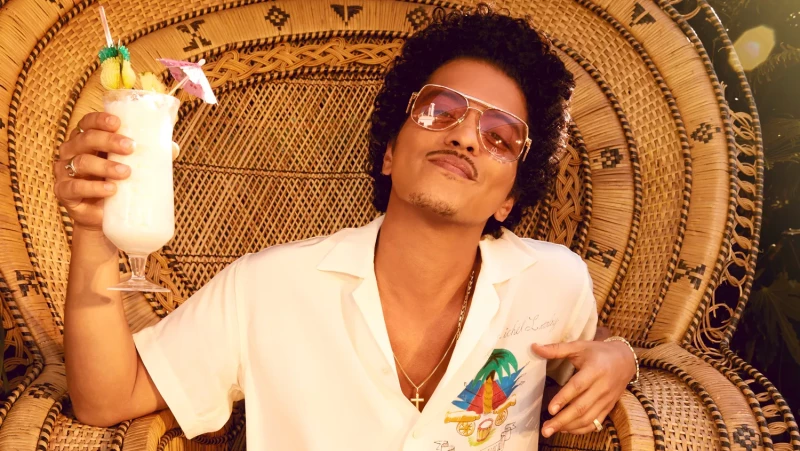
The period between 2016 and 2018 was when Bruno Mars went from "rich musician" to "holy-crap-rich musician." His third album "24K Magic" wasn't just successful – it was a cultural earthquake that had everyone from kids to grandparents doing the "Finesse" dance. Combined with his absolutely legendary second Super Bowl halftime show, Mars became the guy everyone wanted to see perform.
But the real game-changer was his Vegas residency deal. In 2016, Mars inked a multi-year contract with Park MGM that industry insiders valued between $100-150 million. These weren't your typical Vegas lounge acts – Mars was selling out 5,000-seat venues multiple nights per week, with tickets ranging from $79 for nosebleeds to over $500 for the VIP treatment.
During this insane period, Mars was reportedly banking $1.8-2.5 million per Vegas show, performing 2-3 times weekly when he was in town. Add in his ongoing world tours, merchandise sales, and streaming money, and financial experts estimate Mars was pulling in $80-100 million annually during 2017-2018. Those two years alone probably added around $200 million to his total wealth.
Mars also got smart about diversifying his income. He became a co-owner of SelvaRey Rum, launched merchandise lines, and even dabbled in the restaurant business. "I figured out early that you can't just be an artist anymore," Mars told Forbes in 2018. "You have to be a brand, a business. For every dollar I make performing, I try to make two more in other ways."
Bruno Mars' 2025 Money Machine: Sitting Pretty on $175 Million
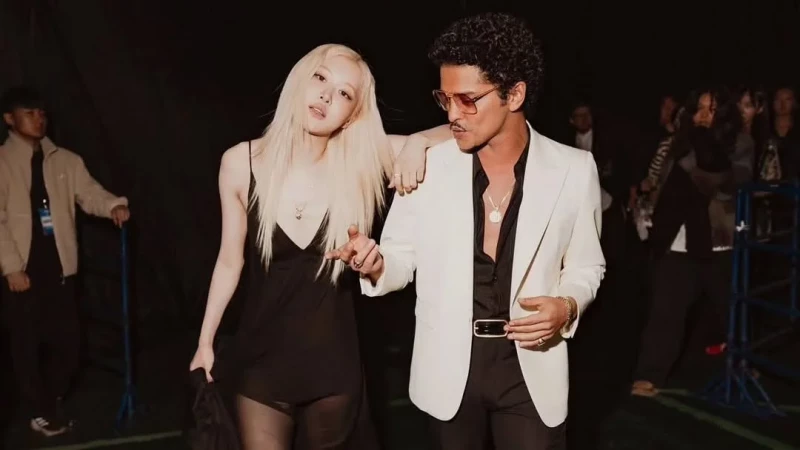
Fast forward to 2025, and Bruno Mars is chilling on a $175 million fortune that keeps growing even when he's not actively grinding. While he's dialed back the crazy touring schedule, Mars is still printing money through multiple streams that would make most people's heads spin.
His Vegas residency remains his biggest cash cow, though he's smartly scaled back to a more sustainable 40-50 shows per year instead of the brutal pace from his peak years. Each show still commands premium pricing, with Mars pocketing $1.5-2 million per performance. The residency setup lets him maintain those massive earnings while actually having a life outside of airports and hotel rooms.
Streaming revenue is absolutely bonkers for Mars – his catalog generates an estimated $15-20 million annually across Spotify, Apple Music, YouTube, and other platforms. "Uptown Funk" alone has been streamed billions of times, creating a passive income stream that keeps flowing whether he's working or lounging on a beach in Hawaii.
Real estate has become a major part of Mars' wealth strategy. He's got a $6.5 million mansion in Hollywood Hills, a $3.2 million pad back home in Hawaii, and reportedly several investment properties generating steady rental income. His SelvaRey Rum partnership has grown into a multi-million dollar asset, and he's been quietly investing in tech startups and entertainment companies.
While Mars has been relatively quiet on the new music front lately, industry whispers suggest he's been cooking up new material and potentially planning another massive tour for 2025-2026. Given his track record, a new album and world tour could easily tack on another $50-100 million to his net worth. At 39, Mars is still hitting his prime earning years as a performer.
Bruno's Blueprint for Building an Empire: Success Lessons from a Music Mogul
Bruno Mars has never been shy about sharing what it really takes to make it big in the music world, and his advice goes way beyond just "follow your dreams" platitudes.
His biggest principle? Stay authentic but never box yourself in: "I never tried to be someone else or chase whatever was trendy," Mars has explained countless times. "But I also never said 'this is my sound and I'm never changing.' Being real doesn't mean being boring." This mindset let him jump from funk to pop to R&B without losing his core fanbase.
Mars is absolutely obsessive about being prepared: "Talent might get you noticed, but preparation is what keeps you relevant," he preaches. "I've never walked into a studio or stepped on stage without being ridiculously over-prepared." This work ethic comes from performing with his family as a kid, where being professional wasn't optional – it was survival.
Patience is probably his most underrated advice: "I spent years getting doors slammed in my face, years perfecting my craft, years building real relationships before anything major happened," he reflected recently. "Success isn't some overnight thing – it's a marathon, and you better pace yourself or you'll burn out before the finish line." This patience allowed him to develop genuine skills instead of chasing quick fixes.
Mars constantly hammers home the business side of creativity: "Being talented isn't enough anymore," he says bluntly. "You have to understand contracts, own your music when possible, and think like a CEO. The music is just one part of the equation." This business-first mindset led to his killer Vegas deals and smart partnerships that keep generating wealth.
Finally, Mars swears by surrounding himself with the right people: "Your team literally makes or breaks everything," he emphasizes. "I've been working with the same core group of writers, producers, and managers for years because trust and chemistry can't be bought." This approach has kept his creative output consistent while building a business machine that runs smoothly even when he's not micromanaging every detail.
"The music industry will absolutely destroy you if you let it," Mars once told a room full of aspiring artists. "But if you stay true to your art, outwork everyone around you, and treat this like the business it really is, you can build something that lasts way longer than any hit song."
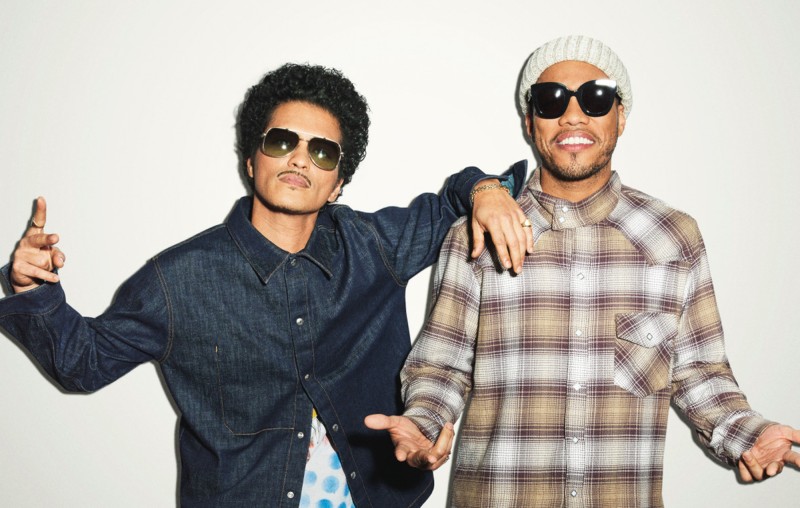
 Saad Ullah
Saad Ullah
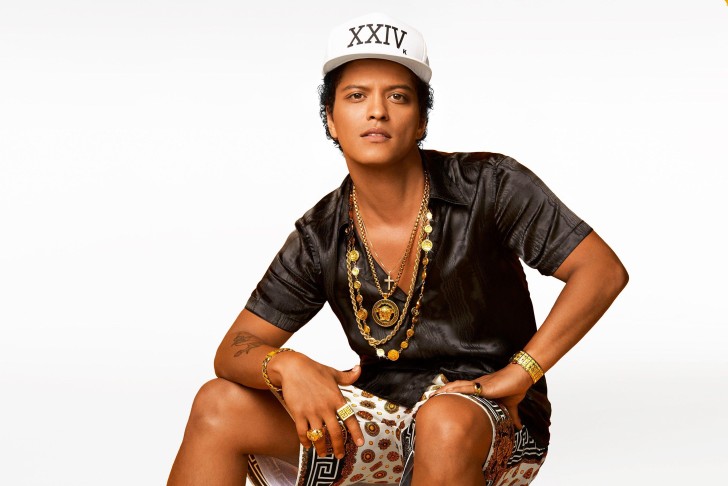
 Saad Ullah
Saad Ullah


